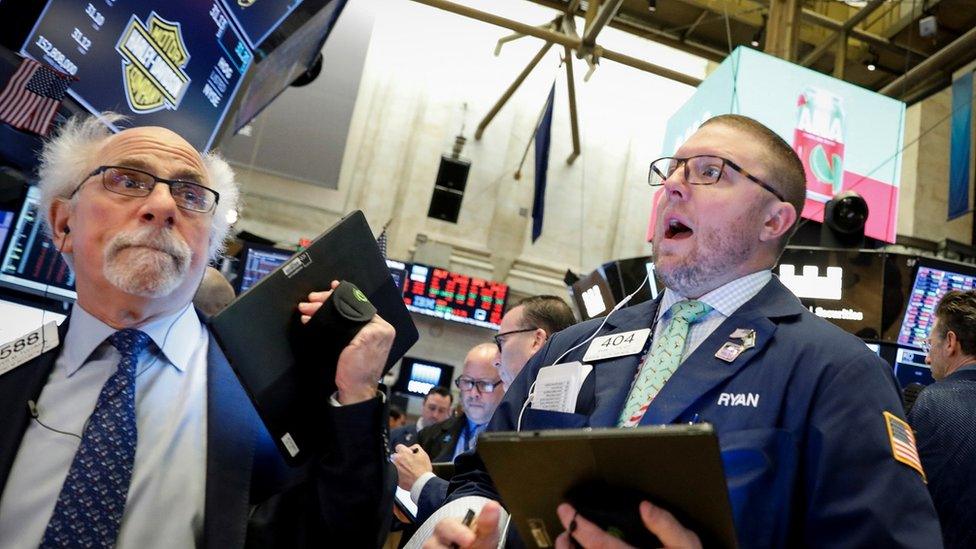The other reason behind Wall Street's jitters
- Published
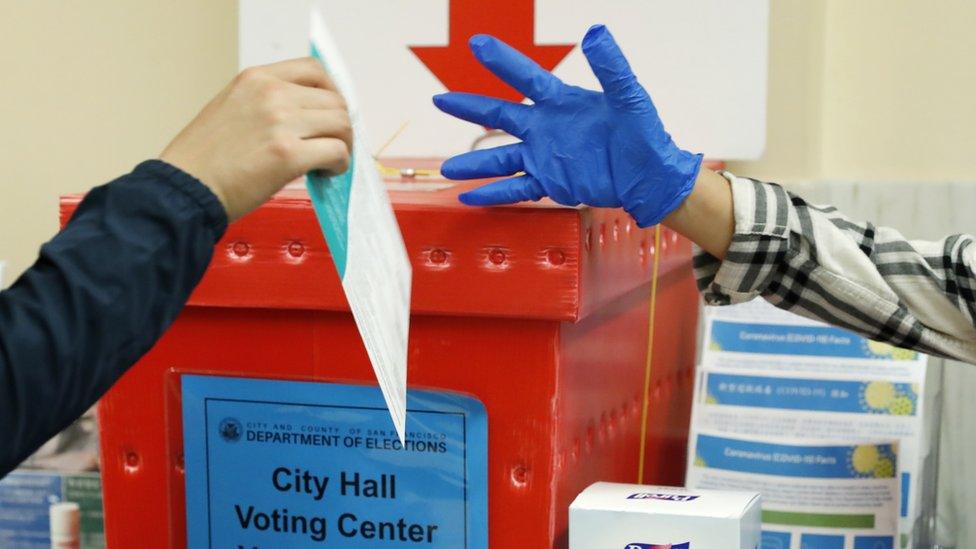
The coronavirus has collided with American politics to worry investors
Global financial markets have plunged in recent weeks, amid fears that the coronavirus outbreak will bring the world economy to a standstill.
But there's another worry nagging at investors, particularly those in the US: politics.
Until recently, Wall Street saw Donald Trump's re-election in November as all but guaranteed. In polls by Goldman Sachs, Deutsche Bank and others, overwhelming majorities of investors have predicted his win.
But as the spread of coronavirus raises the risk of an economic slowdown, those bets have been scrambled. And investors don't particularly like the Democratic alternatives.
That's contributed to the giant fall on the US indexes in the last two weeks, says Lee Ferridge, head of macro-strategy for North America for State Street Global Markets.
"Before the last few weeks there was less concern about who the Democratic candidate was going to be, because the expectation was that President Trump was going to get re-elected," he says.
"The concern now is that if the US goes into recession or the global economy slows significantly.... then that opens the door for a more sort of leftist candidate to win... and obviously that has long-term repercussions for the market."
The Trump administration is seen on Wall Street, for the most part, as good for US business, thanks to a major tax cut and its light regulatory hand in areas such as health care, banking, the environment, and labour practices.
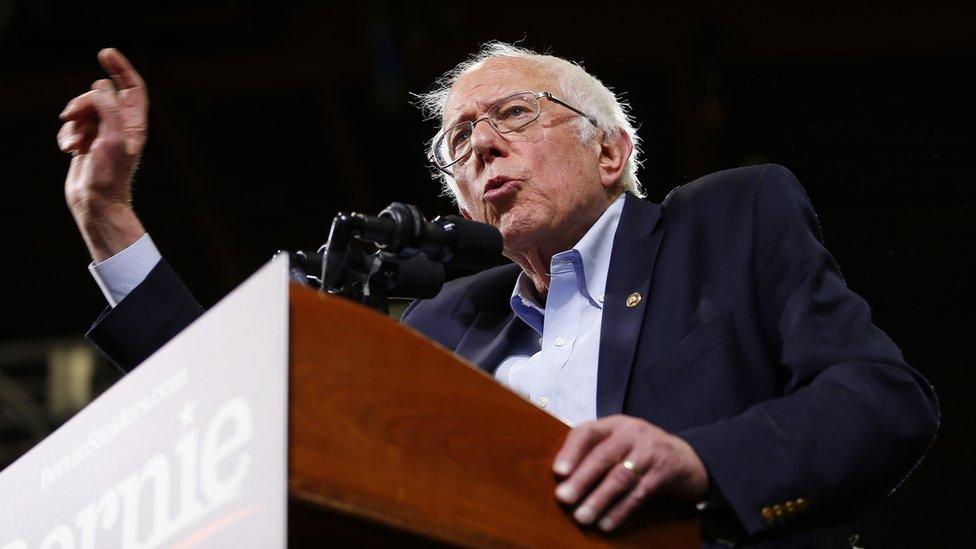
Bernie Sanders is anathema to many on Wall Street
Democrats have not yet settled on who will challenge Mr Trump in November's election.
But they have all promised a different approach, especially when it comes to areas like healthcare - a sector where company shares have been especially volatile in recent weeks.
"It has to do with regulation," says Sam Stovall, chief investment strategist at CFRA Research. "Investors don't like uncertainty. Changing horses in mid-stream presents uncertainty, so if they think that the current administration is going to be removed, chances are we see a decline in the market."
Vermont Senator Bernie Sanders, an avowed Democratic Socialist, has emerged as one of the front-runners in the Democratic contest.
Expanding healthcare and taxing the rich are signatures of his campaign. But his policy proposals, and combative articulation of them, have not won him many fans on Wall Street.

Former Goldman Sachs chief Lloyd Blankfein, a Democrat who supported Hillary Clinton in 2016, has got into skirmishes with him on Twitter and recently said he would find it easier to vote for Mr Trump than Mr Sanders.
Mr Ferridge says investors are worried that even if Mr Sanders found his proposals blocked by Republicans in Congress, he would be able to push through changes via executive orders, which have become increasingly common.
"For the financial markets, it's about Bernie and the concern that if he were to win the White House, he would not be as market-friendly as we've been used to and maybe not as friendly to the corporate world," Mr Ferridge says.
Joe Biden, a former senator who was Barack Obama's vice president and is seen as a more centrist candidate, has emerged as another major contender.
While he was behind in early state contests, Mr Biden drew unexpected support on Tuesday, when Democratic voters in 14 states headed to the polls for their say in who should challenge Mr Trump in November.
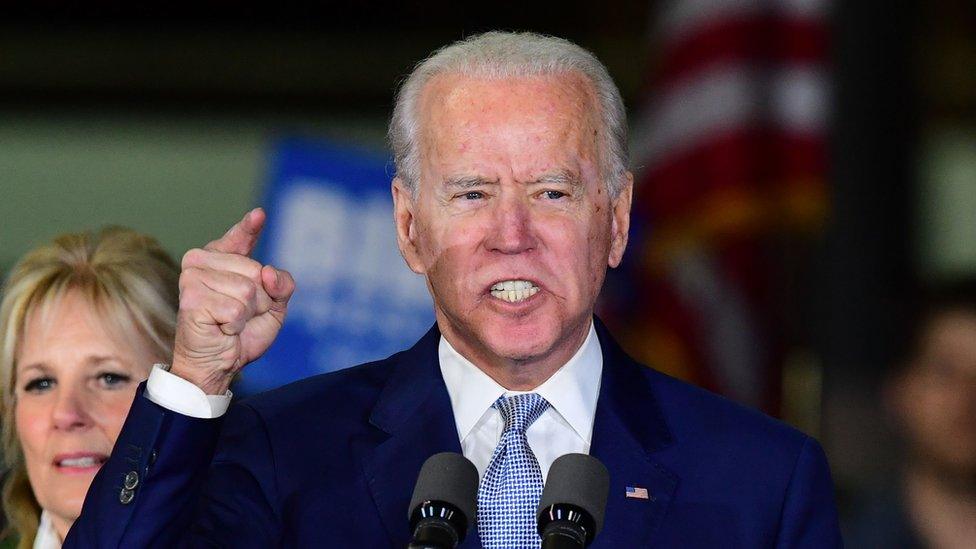
Joe Biden is considered a more centrist candidate
Mr Biden's wins in nine states helped soothe markets on Wednesday, sending the Dow, S&P 500 and Nasdaq up more than 3.8%. There were similar signs of relief on Monday, after his weekend win in South Carolina.
"The market's saying we can live with Joe. We don't think we can live with Bernie," Mr Stovall says.
But investors should be careful what they wish for, says Don Schneider, economist at Cornerstone Macro. In a general election, analysts believe Mr Biden would have a better chance against the president.
"That's the big trade off," says Mr Schneider. For now, he adds, investors should brace themselves for more bumps in the road. "Our advice has been: you have to be prepared for anything."
- Published6 March 2020
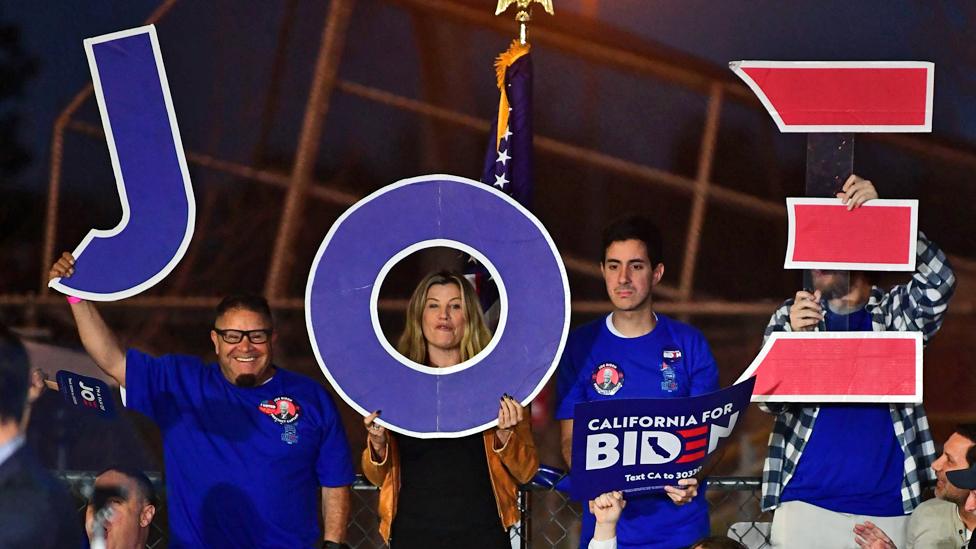
- Published28 February 2020
